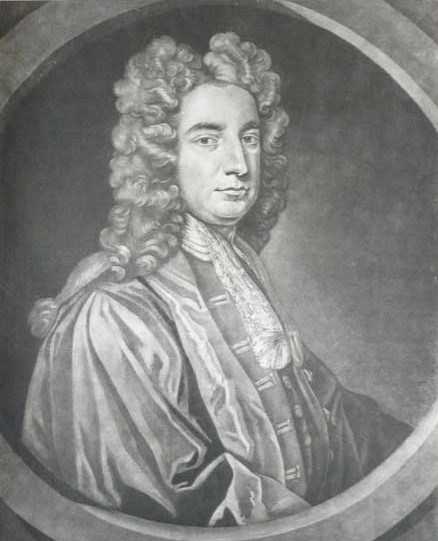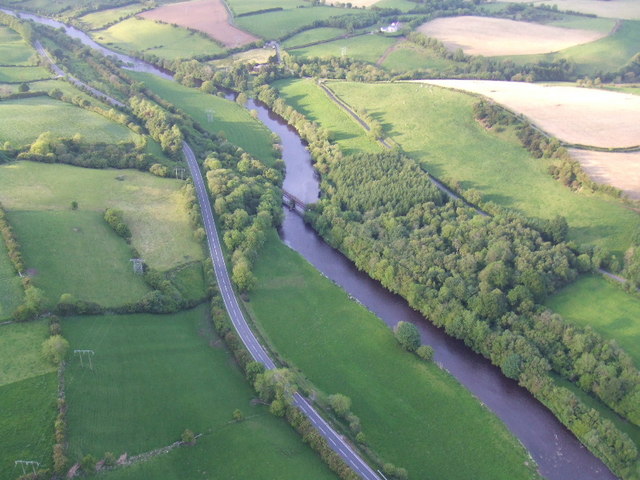|
Thomas Wilson (academic)
Thomas Wilson (1726-22 September 1799) was an Irish academic and clergyman most of whose career was spent at Trinity College Dublin (TCD), where he served as the fifth Erasmus Smith's Professor of Natural and Experimental Philosophy (1769-1786). Life and career Thomas Wilson was born in Donegal, son of the Rev John Wilson. He was educated at TCD, where he was a Scholar (1746) and was in the same class as Oliver Goldsmith. He obtained BA (1848), MA (1853), BD (1758), DD (1864), and was elected a Fellow (1853), and later, Senior Fellow. He was Erasmus Smith's Professor of Natural and Experimental Philosophy (1769-1786), and was appointed Archbishop King's Lecturer in Divinity (1785). He resigned from TCD in 1786 to become Rector of Ardstraw Ardstraw (from ga, Ard Sratha (hill or height of the holm or strath)) is a small village, townland and civil parish in County Tyrone, Northern Ireland, three miles northwest of Newtownstewart. In the 2001 Census it had a population of 222 ... [...More Info...] [...Related Items...] OR: [Wikipedia] [Google] [Baidu] |
Trinity College Dublin
, name_Latin = Collegium Sanctae et Individuae Trinitatis Reginae Elizabethae juxta Dublin , motto = ''Perpetuis futuris temporibus duraturam'' (Latin) , motto_lang = la , motto_English = It will last into endless future times , founder = Queen Elizabeth I , established = , named_for = Trinity, The Holy Trinity.The Trinity was the patron of The Dublin Guild Merchant, primary instigators of the foundation of the University, the arms of which guild are also similar to those of the College. , previous_names = , status = , architect = , architectural_style =Neoclassical architecture , colours = , gender = , sister_colleges = St. John's College, CambridgeOriel College, Oxford , freshman_dorm = , head_label = , head = , master = , vice_head_label = , vice_head = , warden ... [...More Info...] [...Related Items...] OR: [Wikipedia] [Google] [Baidu] |
Erasmus Smith's Professor Of Natural And Experimental Philosophy
Erasmus Smith's Professor of Natural and Experimental Philosophy at Trinity College Dublin is a chair in physics founded in 1724 and funded by the Erasmus Smith Trust, which was established by Erasmus Smith, a wealthy London merchant, who lived from 1611–1691. It is one of the oldest dedicated chairs of physics in Britain and Ireland. Originally, the holder was to be elected from the members of the college by an examination to determine the person best qualified for the professorship. Since 1851, the professorship has been supported by Trinity College. Of the 22 holders of this chair, seven were Fellows of the Royal Society while one, Ernest Walton, won the Nobel Prize for Physics. The inaugural Erasmus Smith's Professor of Natural and Experimental Philosophy was Richard Helsham (1724), who was also the Donegal Lecturer in Mathematics (1723-30) as well as the Regius Professor of Physic (1733-38) at Trinity College. He is best known for his book, ''A Course of Lectures in N ... [...More Info...] [...Related Items...] OR: [Wikipedia] [Google] [Baidu] |
County Donegal
County Donegal ( ; ga, Contae Dhún na nGall) is a county of Ireland in the province of Ulster and in the Northern and Western Region. It is named after the town of Donegal in the south of the county. It has also been known as County Tyrconnell (), after the historic territory of the same name, on which it was based. Donegal County Council is the local council and Lifford the county town. The population was 166,321 at the 2022 census. Name County Donegal is named after the town of Donegal () in the south of the county. It has also been known by the alternative name County Tyrconnell, Tirconnell or Tirconaill (, meaning 'Land of Conall'). The latter was its official name between 1922 and 1927. This is in reference to the kingdom of Tír Chonaill and the earldom that succeeded it, which the county was based on. History County Donegal was the home of the once-mighty Clann Dálaigh, whose best-known branch was the Clann Ó Domhnaill, better known in English as the O'Don ... [...More Info...] [...Related Items...] OR: [Wikipedia] [Google] [Baidu] |
Oliver Goldsmith
Oliver Goldsmith (10 November 1728 – 4 April 1774) was an Anglo-Irish novelist, playwright, dramatist and poet, who is best known for his novel ''The Vicar of Wakefield'' (1766), his pastoral poem ''The Deserted Village'' (1770), and his plays ''The Good-Natur'd Man'' (1768) and ''She Stoops to Conquer'' (1771, first performed in 1773). He is thought to have written the classic children's tale ''The History of Little Goody Two-Shoes'' (1765). Biography Goldsmith's birth date and year are not known with certainty. According to the Library of Congress authority file, he told a biographer that he was born on 10 November 1728. The location of his birthplace is also uncertain. He was born either in the townland of Pallas, near Ballymahon, County Longford, Ireland, where his father was the Anglican curate of the parish of Forgney, or at the residence of his maternal grandparents, at the Smith Hill House near Elphin in County Roscommon, where his grandfather Oliver Jones was a ... [...More Info...] [...Related Items...] OR: [Wikipedia] [Google] [Baidu] |
Ardstraw
Ardstraw (from ga, Ard Sratha (hill or height of the holm or strath)) is a small village, townland and civil parish in County Tyrone, Northern Ireland, three miles northwest of Newtownstewart. In the 2001 Census it had a population of 222 people (81 houses). Bishopric The Diocese of Ardstraw was founded in the 6th century by Saint Eoghan. It is one of the dioceses recognized by the Synod of Ráth Breasail in 1111. Although the 1152 Synod of Kells replaced it in its list of dioceses with that of Maghera, the seat of which was later moved to Derry, bishops of Ardstraw continued to exist until the early 13th century, when the see was finally united to that of Derry. No longer a residential bishopric it is today listed by the Catholic Church as a titular see. John de Courcy In 1198, John de Courcy, a Norman knight who had invaded Ulster in 1177, destroyed the church of Ardstraw on his way to Inishowen. Ardstraw townland The townland is situated in the historic barony of Strabane ... [...More Info...] [...Related Items...] OR: [Wikipedia] [Google] [Baidu] |
County Tyrone
County Tyrone (; ) is one of the six Counties of Northern Ireland, counties of Northern Ireland, one of the nine counties of Ulster and one of the thirty-two traditional Counties of Ireland, counties of Ireland. It is no longer used as an administrative division for local government but retains a strong identity in popular culture. Adjoined to the south-west shore of Lough Neagh, the county covers an area of and has a population of about 177,986; its county town is Omagh. The county derives its name and general geographic location from Tír Eoghain, a Gaelic kingdom under the O'Neill dynasty which existed until the 17th century. Name The name ''Tyrone'' is derived , the name given to the conquests made by the Cenél nEógain from the provinces of Airgíalla and Ulaid.Art Cosgrove (2008); "A New History of Ireland, Volume II: Medieval Ireland 1169-1534". Oxford University Press. Historically, it was anglicised as ''Tirowen'' or ''Tyrowen'', which are closer to the Irish pronunci ... [...More Info...] [...Related Items...] OR: [Wikipedia] [Google] [Baidu] |
Academics Of Trinity College Dublin
An academy (Attic Greek: Ἀκαδήμεια; Koine Greek Ἀκαδημία) is an institution of secondary or tertiary higher learning (and generally also research or honorary membership). The name traces back to Plato's school of philosophy, founded approximately 385 BC at Akademia, a sanctuary of Athena, the goddess of wisdom and skill, north of Athens, Greece. Etymology The word comes from the ''Academy'' in ancient Greece, which derives from the Athenian hero, ''Akademos''. Outside the city walls of Athens, the gymnasium was made famous by Plato as a center of learning. The sacred space, dedicated to the goddess of wisdom, Athena, had formerly been an olive grove, hence the expression "the groves of Academe". In these gardens, the philosopher Plato conversed with followers. Plato developed his sessions into a method of teaching philosophy and in 387 BC, established what is known today as the Old Academy. By extension, ''academia'' has come to mean the accumulation, dev ... [...More Info...] [...Related Items...] OR: [Wikipedia] [Google] [Baidu] |
Alumni Of Trinity College Dublin
Alumni (singular: alumnus (masculine) or alumna (feminine)) are former students of a school, college, or university who have either attended or graduated in some fashion from the institution. The feminine plural alumnae is sometimes used for groups of women. The word is Latin and means "one who is being (or has been) nourished". The term is not synonymous with "graduate"; one can be an alumnus without graduating ( Burt Reynolds, alumnus but not graduate of Florida State, is an example). The term is sometimes used to refer to a former employee or member of an organization, contributor, or inmate. Etymology The Latin noun ''alumnus'' means "foster son" or "pupil". It is derived from PIE ''*h₂el-'' (grow, nourish), and it is a variant of the Latin verb ''alere'' "to nourish".Merriam-Webster: alumnus .. Separate, but from the ... [...More Info...] [...Related Items...] OR: [Wikipedia] [Google] [Baidu] |
Classical Scholars Of Trinity College Dublin
Classical may refer to: European antiquity *Classical antiquity, a period of history from roughly the 7th or 8th century B.C.E. to the 5th century C.E. centered on the Mediterranean Sea *Classical architecture, architecture derived from Greek and Roman architecture of classical antiquity *Classical mythology, the body of myths from the ancient Greeks and Romans *Classical tradition, the reception of classical Greco-Roman antiquity by later cultures *Classics, study of the language and culture of classical antiquity, particularly its literature *Classicism, a high regard for classical antiquity in the arts Music and arts *Classical ballet, the most formal of the ballet styles *Classical music, a variety of Western musical styles from the 9th century to the present *Classical guitar, a common type of acoustic guitar *Classical Hollywood cinema, a visual and sound style in the American film industry between 1927 and 1963 * Classical Indian dance, various codified art forms whose theo ... [...More Info...] [...Related Items...] OR: [Wikipedia] [Google] [Baidu] |
Fellows Of Trinity College Dublin
{{disambiguation ...
Fellows may refer to Fellow, in plural form. Fellows or Fellowes may also refer to: Places *Fellows, California, USA *Fellows, Wisconsin, ghost town, USA Other uses *Fellows Auctioneers, established in 1876. *Fellowes, Inc., manufacturer of workspace products *Fellows, a partner in the firm of English canal carriers, Fellows Morton & Clayton *Fellows (surname) See also *North Fellows Historic District, listed on the National Register of Historic Places in Wapello County, Iowa *Justice Fellows (other) Justice Fellows may refer to: * Grant Fellows (1865–1929), associate justice of the Michigan Supreme Court * Raymond Fellows (1885–1957), associate justice of the Maine Supreme Judicial Court {{disambiguation, tndis ... [...More Info...] [...Related Items...] OR: [Wikipedia] [Google] [Baidu] |
Provosts Of Trinity College Dublin
Provost may refer to: People * Provost (name), a surname Officials Government * Provost (civil), an officer of local government, including the equivalent of a mayor in Scotland * Lord provost, the equivalent of a lord mayor in Scotland Military * Provost (military police), military police responsible for policing within the armed forces * Provost marshal, an officer in charge of military police * Provost Marshal General, commander of the military police in the United States * Provost sergeant, a sergeant in charge of regimental police in Commonwealth armies Religion * Provost (religion), a high-ranking church official * Prince-provost, a high-ranking church official Other fields * Provost (education), a senior academic administrator within certain higher education institutions * Provost (martial arts), a ranking that was second only to master in Renaissance England Aircraft * BAC Jet Provost, a British training aircraft * Percival Provost, British training aircraft Geog ... [...More Info...] [...Related Items...] OR: [Wikipedia] [Google] [Baidu] |




